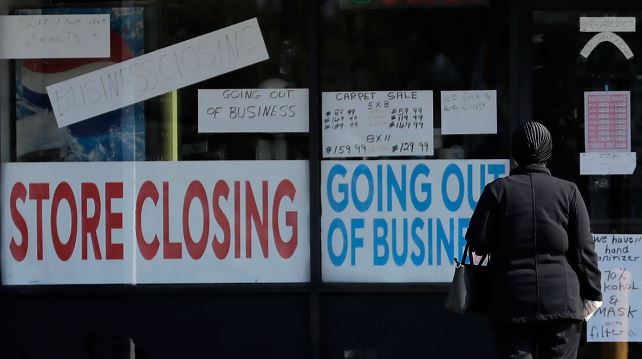WASHINGTON – Initial jobless claims in the United States fell for the first time in a month to reach 326,000 last week, as the labour market recovery is disrupted by the COVID-19 Delta variant surge, the U.S. Labour Department reported on Thursday.
In the week ending Oct. 2, the number of Americans filing for unemployment benefits dropped by 38,000 from the previous week’s upwardly revised level of 364,000, according to a report released by the department’s Bureau of Labour Statistics.
The latest figure was the lowest since early September and reverses a trend of rising claims over the previous three weeks amid a Delta variant-fuelled COVID-19 surge.
The four-week moving average, a method to iron out data volatility, increased by 3,500 to 344,000, according to the report.
In recent months, initial jobless claims hit fresh lows in the pandemic era on multiple occasions, but the declining trend was repeatedly reversed, indicating a bumpy economic recovery.
The latest jobless claims report also showed that the number of people continuing to collect regular state unemployment benefits in the week ending Sept. 25 decreased by 97,000 to 2.7 million. That number peaked in April and May last year, when it was over 20 million.
Meanwhile, the total number of people claiming benefits in all programs — state and federal combined — for the week ending Sept. 18 fell by 854,638 to 4.17 million.
In particular, the number of people filing for Pandemic Unemployment Assistance, a federal program that covers workers who normally would not qualify for unemployment insurance, such as gig workers and the self-employed, fell by 411,558 to 647,690 for the week ending Sept. 18.
The Pandemic Emergency Unemployment Compensation, which provides an additional 13 weeks of benefits for those who exhaust regular state benefits, also saw its claims fall by 360,999 to 630,814.
These numbers have decreased significantly after federal unemployment benefits for over 10 million people expired in early September.
